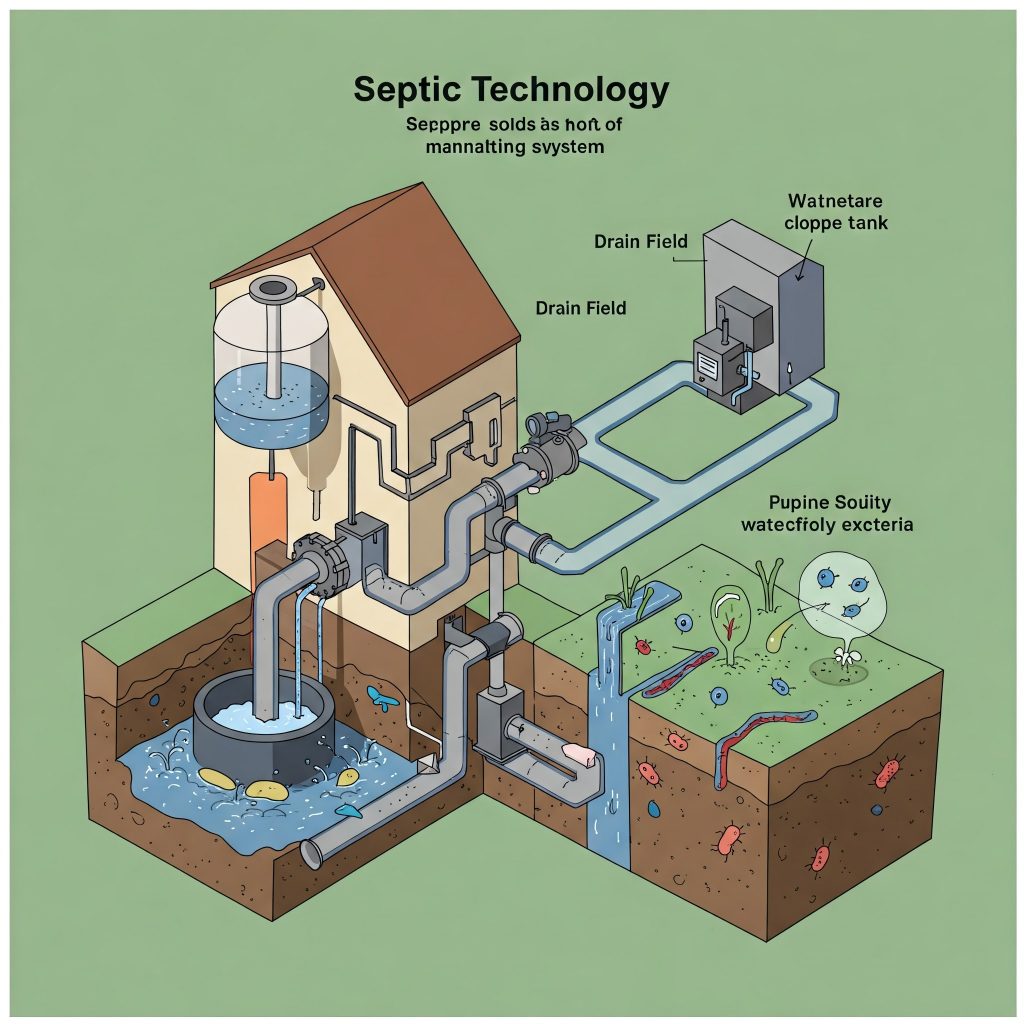
Septic systems have come a long way since their invention, and recent technological advancements are making them smarter, cleaner, and more efficient than ever before. These innovations are not only improving wastewater treatment but also reducing the environmental impact of septic systems.
One of the most exciting developments is the rise of advanced treatment systems, such as aerobic treatment units (ATUs) and recirculating sand filters. Unlike traditional septic tanks, which rely on anaerobic bacteria to break down waste, ATUs introduce oxygen into the system, promoting the growth of aerobic bacteria that are more effective at breaking down organic matter. This process removes more contaminants, including nitrogen and pathogens, from wastewater, making ATUs ideal for environmentally sensitive areas where water quality is a top priority.
Another game-changer is the emergence of smart septic systems. Equipped with sensors and remote monitoring capabilities, these systems can detect issues like high water levels or pump failures in real time. Homeowners and technicians receive alerts via smartphone apps or email, allowing them to address problems before they escalate into costly repairs or environmental hazards. Some smart systems even provide data on water usage and system performance, helping homeowners optimize their wastewater management.
As technology continues to evolve, septic systems are becoming more sustainable and effective at protecting our water resources. If you’re considering upgrading your septic system, explore these advanced options to ensure your home is equipped with the latest in wastewater treatment technology. Not only will you be doing your part to protect the environment, but you’ll also enjoy the peace of mind that comes with a more reliable and efficient system.
The #1 Septic Tank Treatment On The Market
“The released oxygen reacts immediately with the waste substances that are inside your septic tank and reduces, then slowly eliminates the smell – in just 3 to 5 days.”

